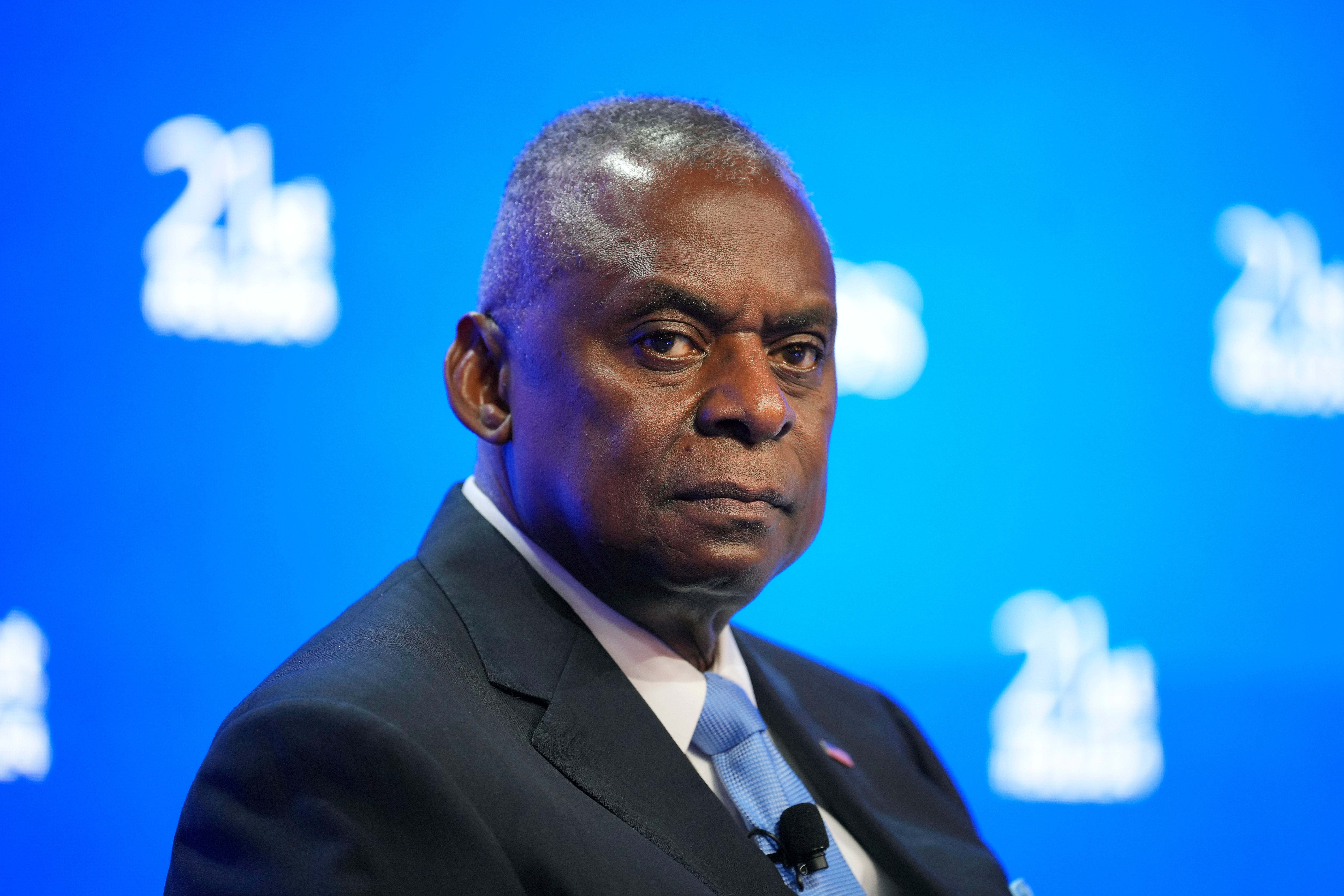US defense secretary meets Cambodia's top officials to push for stronger ties with China's ally
U.S. Defense Secretary Lloyd Austin is in Cambodia to push for stronger military ties with China’s closest ally in Southeast Asia

Your support helps us to tell the story
From reproductive rights to climate change to Big Tech, The Independent is on the ground when the story is developing. Whether it's investigating the financials of Elon Musk's pro-Trump PAC or producing our latest documentary, 'The A Word', which shines a light on the American women fighting for reproductive rights, we know how important it is to parse out the facts from the messaging.
At such a critical moment in US history, we need reporters on the ground. Your donation allows us to keep sending journalists to speak to both sides of the story.
The Independent is trusted by Americans across the entire political spectrum. And unlike many other quality news outlets, we choose not to lock Americans out of our reporting and analysis with paywalls. We believe quality journalism should be available to everyone, paid for by those who can afford it.
Your support makes all the difference.U.S. Defense Secretary Lloyd Austin traveled to Cambodia on Tuesday to push for stronger military ties with China’s closest ally in Southeast Asia.
Austin met his Cambodian counterpart, Tea Seiha, and Prime Minister Hun Manet during a one-day visit to Phnom Penh, Cambodia's Defense Ministry said in a statement. It said Austin's visit would strengthen the ongoing good cooperation between the countries that has lasted more than 70 years.
Austin arrived from Singapore, where he attended the Shangri-La defense forum and held talks with his Chinese counterpart, Adm. Dong Jun, as the the U.S. and China gradually work to repair lines of communications between their militaries that could be critical as tensions continue to rise between the two in the Indo-Pacific region.
U.S. relations with Cambodia have been frosty for years, in large part because of Phnom Penh’s close ties with China, and particularly China's military presence at a navy base in the Gulf of Thailand that has been upgraded with Beijing's assistance. Washington has also been vocal about what it sees as Cambodia’s poor human rights record, which has seen continuing clampdowns on political dissidents and critics.
Cambodian officials deny China will have any special basing privileges and say their country maintains a neutral defense posture.
The visit was Austin’s first visit to Cambodia since Hun Manet became prime minister last year, succeeding his father Hun Sen, who held office for 38 years. The handover has led to speculation of a reset in U.S.-Cambodia relations, though so far Hun Manet has maintained his father’s policies.
Hun Manet was Cambodia’s army commander before becoming prime minister last August. Both Austin and he graduated from the U.S. Military Academy at West Point — Austin in 1975 and Hun Manet in 1999, as Cambodia’s first cadet there.
Austin also held separate talks Tuesday with Hun Sen, who is now the president of the Senate.
From Cambodia, Austin will go to France to attend events commemorating the 80th anniversary of the World War II D-Day landing, the U.S. Defense Department said.